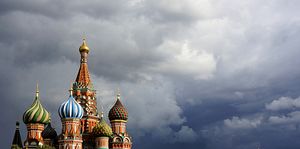Earlier this week, the London-based PR outfit Portland Communications released its second annual list of nations with the greatest magnitude of “soft power.” Relying on Joseph Nye’s traditional delineation of “soft power” – attraction as influence; the “pull” to hard power’s “push” – the group, patching together a supposed formula, claimed to reveal the 30 nations with the largest reserves of “soft power” globally. The metrics, over 75 in total, included categories like “culture” and “government,” with sub-categories ranging from the number of Olympic medals earned in 2014 to the number of Instagram followers maintained by the head of state.
To be sure, measuring a reality as intrinsically subjective as “soft power” – to say nothing of creating a formula that can apparently measure it – is something approaching a fool’s errand. Unlike good governance or quality-of-life standards, the categorization behind “soft power” is, inherently, subject to the input of immeasurable categories. Moreover, the fact that the catalog was put out by a non-academic outfit tied to numerous authoritarian regimes – an outfit that has been engaged in questionable practices, no less – only added to concerns surrounding the study.
Indeed, most eyebrows were likely raised when Portland revealed that, according to its “soft power” formula, Russia had finally cracked its top-30 global rankings, joining Argentina and Hungary as first-timers on the list. Coming in at No. 27, Moscow sits in between Hungary and China. (Other Asia-Pacific nations cracking the top-30 including Australia at No. 6, Japan at No. 7, New Zealand at No. 16, Singapore at No. 19, and South Korea at No. 22.) Anticipating criticism about including a country like Russia in the top-30, the report’s authors claimed that Moscow’s role in combatting ISIS – as well as the fact that it didn’t advance its position any further into Ukraine – appeared to help international perception. “Russia performed markedly better on the international polling in 2016, compared with 2015,” the report’s authors noted.
And there is an argument to be made that Russia belongs beside Germany, the UK, and France among the top-30 nations boasting the greatest reservoirs of “soft power.” After all, if we’re including something like foreign countries adopting another nation’s domestic governing strategies within our definition of “soft power,” there’s certainly a preponderance of evidence that Moscow’s preferences for authoritarianism have found eager buyers throughout the post-Soviet sphere, and even within the West. From elite predation to media consolidation, from political domination to civil rights diminution, Moscow’s certainly proven over-eager to provide an example for other authoritarians globally.
But if we’re to take Portland at its word, Russia’s placement within the top-30 nations also comes while Moscow, per available polling, maintains the highest international disapproval rankings among any major nation. Likewise, Russia is now viewed as the primary threat among fellow member-nations in the Commonwealth of Independent States, plus Georgia. Moscow has also been unable to convince any other prominent nation to back its claims to annexation in Crimea, and has so far proven unable to coerce a country like Tajikistan, an effective client-state, into joining the Eurasian Economic Union. If we toss in the Collective Security Treaty Organization, there’s a distinct reality that the Moscow-led international organizations are as inefficacious as they are vanity projects.
All of this isn’t to say, necessarily, that Russia doesn’t maintain a notable amount “soft power” – the country’s cultural legacy, to say nothing of its position as a permanent member on the UN Security Council, would attest to as much. But the fact that Russia can exist within the top-30 countries – to say nothing of the fact that it is somehow ahead of China – casts significant questions on the utility of such findings.
Of course, as The Guardian’s Shaun Walker noted, Portland is a company that was recently on the Kremlin’s dole to help whitewash Moscow’s global reputation. With these new rankings, it appears Moscow’s still getting its money’s worth.
































